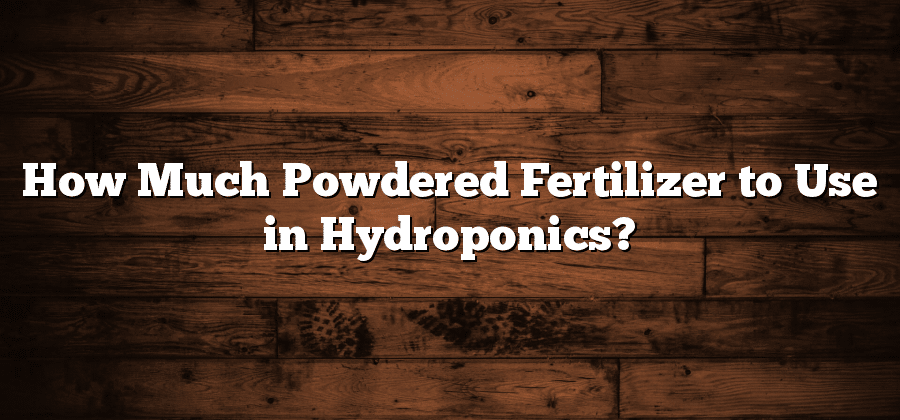Nutrient Requirements for Hydroponic Plants
Hydroponic plants have unique nutrient requirements that differ from traditional soil-grown plants. Since they are not able to obtain nutrients from the soil, it is crucial to provide them with a well-balanced nutrient solution that meets their specific needs. The three primary macronutrients that hydroponic plants require are nitrogen, phosphorus, and potassium. These nutrients play essential roles in various plant processes such as photosynthesis, root development, and flower and fruit production.
In addition to the macronutrients, hydroponic plants also require several essential micronutrients for optimal growth and development. These micronutrients include calcium, magnesium, iron, manganese, zinc, copper, boron, and molybdenum. While these elements are needed in much smaller amounts compared to macronutrients, their absence or deficiency can have severe consequences on plant health and productivity. Providing hydroponic plants with a nutrient solution that contains a balanced ratio of both macro and micronutrients is crucial to ensure their overall health and maximize their yield potential.
Types of Powdered Fertilizers for Hydroponics
There are various types of powdered fertilizers available for hydroponic systems. These fertilizers are specifically formulated to provide the necessary nutrients for plant growth in a soil-less environment. One common type is a balanced powdered fertilizer that contains a mix of macronutrients, such as nitrogen (N), phosphorus (P), and potassium (K). These macronutrients are essential for overall plant development and can help promote healthy root growth, flowering, and fruit production in hydroponic plants.
Another type of powdered fertilizer is a specialty blend that focuses on specific nutrients that may be deficient in hydroponic systems. For example, some fertilizers may be formulated with higher levels of calcium (Ca) and magnesium (Mg), which are essential for strong cell structure and photosynthesis. Other specialty blends may focus on micronutrients, such as iron (Fe), zinc (Zn), and manganese (Mn), which are necessary for various enzyme functions and biochemical processes in plants. These specialized fertilizers can help address any nutrient imbalances or deficiencies that may occur in hydroponic systems, ensuring optimal plant growth and productivity.
Understanding Nutrient Concentration in Hydroponics
One of the key factors in achieving optimal growth and development of plants in hydroponics is maintaining the right nutrient concentration in the nutrient solution. Nutrient concentration refers to the amount of essential elements, such as nitrogen, phosphorus, and potassium, present in the solution. In hydroponics, the nutrient concentration is measured in terms of electrical conductivity (EC) or parts per million (PPM), which indicates the concentration of dissolved salts in the solution.
Maintaining the correct nutrient concentration is crucial because both excess and deficiency of nutrients can have negative effects on plant health. If the nutrient concentration is too low, plants may suffer from nutrient deficiencies, leading to stunted growth, yellowing leaves, and decreased productivity. On the other hand, an excessive nutrient concentration can result in nutrient toxicity, causing leaf burn, root damage, and overall poor plant performance. Achieving the right balance is essential for ensuring optimal plant growth and maximizing crop yields in hydroponic systems.
Factors Influencing Fertilizer Dosage in Hydroponics
Factors influencing fertilizer dosage in hydroponics can vary depending on several key factors. One important factor to consider is the type of plant being grown. Different plants have varying nutrient requirements, and understanding these needs is crucial for providing the right dosage of fertilizers. For example, leafy greens such as lettuce and spinach often require higher amounts of nitrogen, while fruiting plants like tomatoes and peppers may require a higher phosphorus and potassium ratio.
Another factor to consider is the growth stage of the plants. Young seedlings have different nutrient needs compared to mature plants. During the early stages of growth, plants require higher amounts of nitrogen to support leaf and stem development. As they transition into the flowering and fruiting stages, the demand for phosphorus and potassium increases to support flower and fruit production. Therefore, adjusting the fertilizer dosage based on the growth stage of the plants is essential for optimizing their nutrient uptake and overall growth.
Overall, understanding the factors that influence fertilizer dosage in hydroponics is crucial for achieving optimal plant growth and productivity. By considering the specific nutrient requirements of different plant types and adjusting the dosage based on the growth stage, hydroponic growers can ensure that their plants receive the right amount of nutrients for healthy and robust growth.
Determining the Ideal Fertilizer Dosage for Hydroponic Systems
Determining the ideal fertilizer dosage for hydroponic systems is crucial for ensuring optimal plant growth and productivity. This dosage is dependent on various factors such as the type of plant, growth stage, nutrient solution, and environmental conditions.
One of the key considerations in determining the ideal fertilizer dosage is the nutrient requirements of the specific plant species being grown. Different plants have different nutrient needs, and it is essential to understand these requirements in order to provide the right amount of fertilizers. Additionally, the growth stage of the plants should also be taken into account. Younger plants might require lower fertilizer dosages compared to mature ones. By closely monitoring the plant’s growth and regularly measuring nutrient levels in the solution, growers can fine-tune the fertilizer dosage to meet the plant’s changing needs.






